Women’s Gold Medalists 2016 Rio Olympics
An illustrated project of all the women who won gold medals in the London and Rio Olympics created to give much needed recognition to female athletes, to represent them as positive role models while also celebrating diversity.
The Challenge
Women’s sport receives approximately 5% of media coverage and has a tendency to value aesthetics over athletics. Marian Wright Edelman, founder and president of the Children’s Defence Fund has stated “It’s hard to be what you can’t see”. It is also hard to aspire to be something that has very mixed messages around how we value femininity. There are a host of social, psychological and health benefits when girls participate in sport that continue when they become women. How do we create a shift in this perception that women’s sport is inferior to men’s sport?
Women’s sport receives approximately 5% of media coverage and has a tendency to value aesthetics over athletics. Marian Wright Edelman, founder and president of the Children’s Defence Fund has stated “It’s hard to be what you can’t see”. It is also hard to aspire to be something that has very mixed messages around how we value femininity. There are a host of social, psychological and health benefits when girls participate in sport that continue when they become women. How do we create a shift in this perception that women’s sport is inferior to men’s sport?
The Outcome
A data based illustrated book, poster and website that represents female athletes as positive role models as well as showing the athletic potential of women by celebrating diversity in body types. The project was originally created for the London Olympics as a labour of love with two posters and website. As the result of a successful kickstarter campaign, it was continued for Rio with the additional creation of a book.
womensgoldmedalists.com
A data based illustrated book, poster and website that represents female athletes as positive role models as well as showing the athletic potential of women by celebrating diversity in body types. The project was originally created for the London Olympics as a labour of love with two posters and website. As the result of a successful kickstarter campaign, it was continued for Rio with the additional creation of a book.
womensgoldmedalists.com

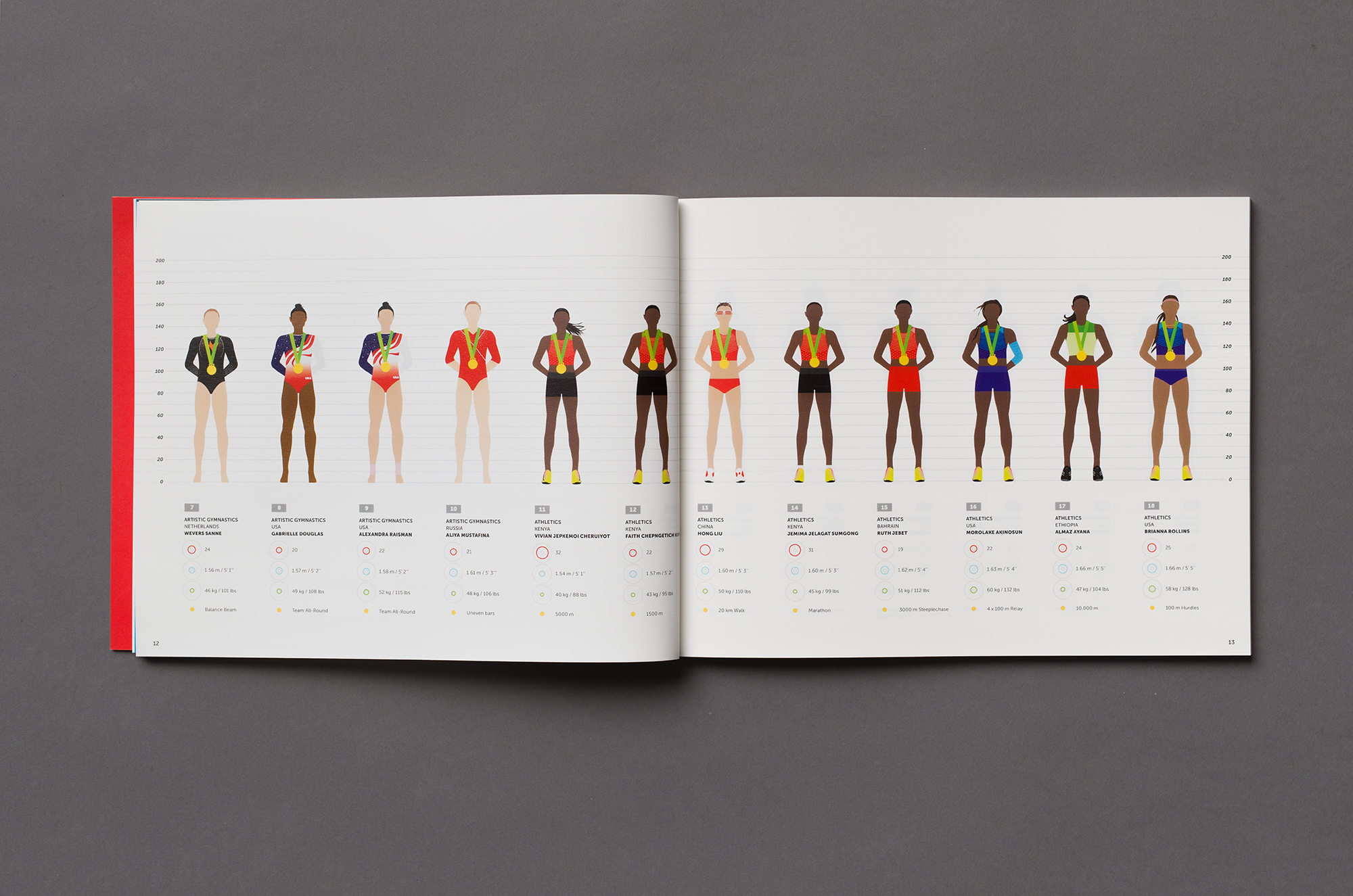
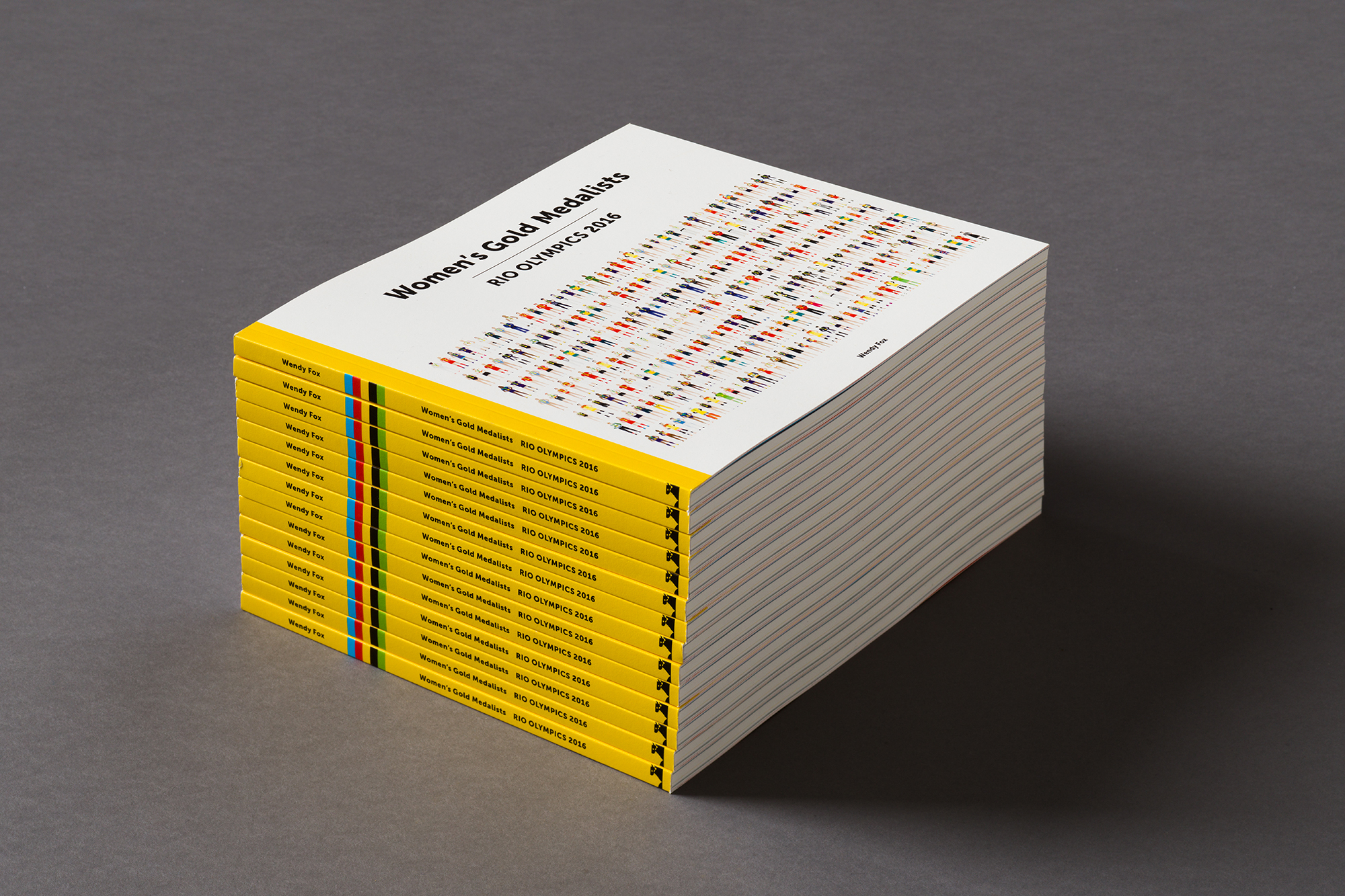
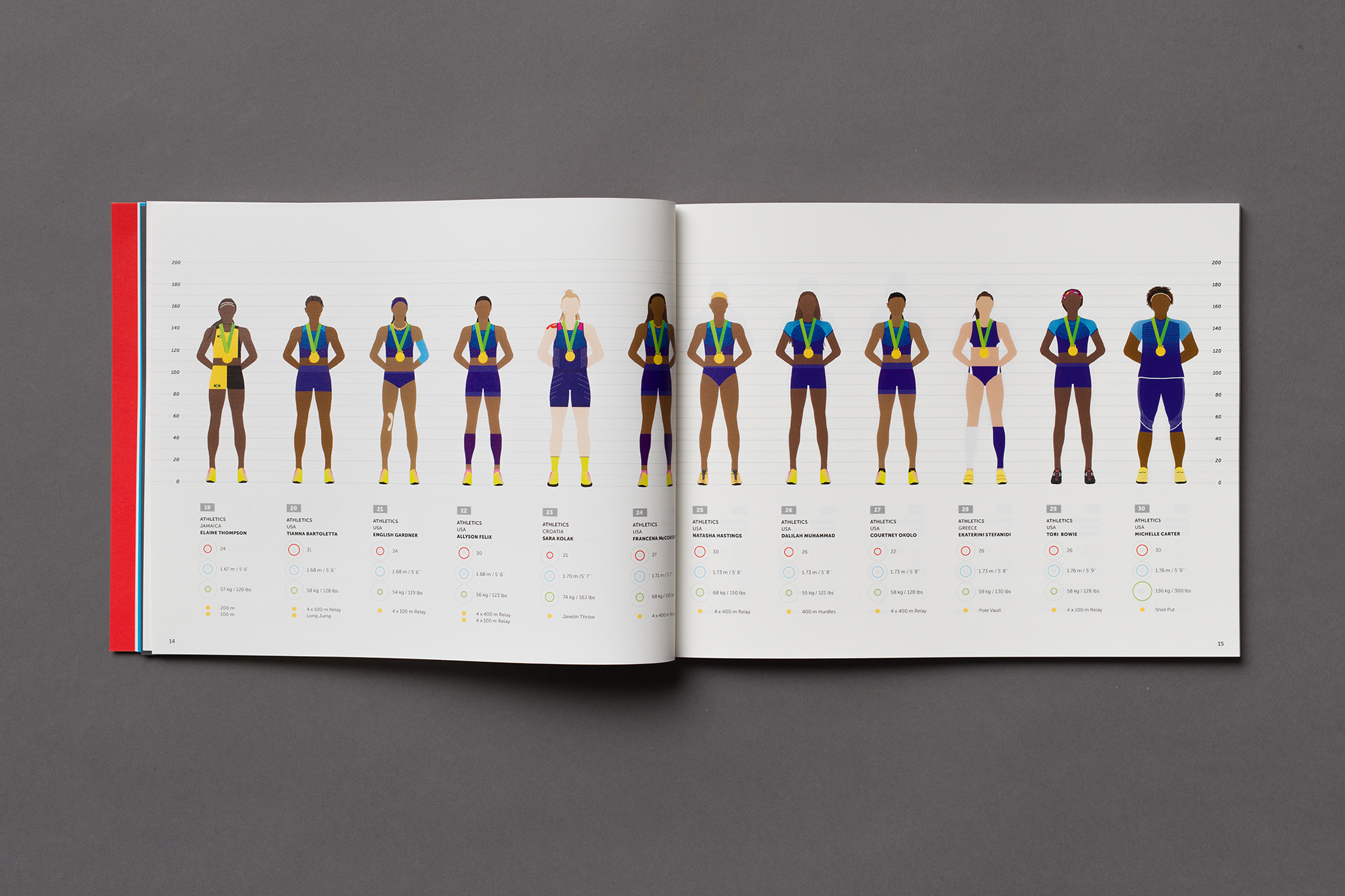
Why idealising femininity is a problem
While watching the 2012 London Olympics, the television broadcast shifted very briefly from the spectacle of women’s gymnastics to women’s weightlifting. The brevity of coverage to such a contrasting sport felt palpable. As always the gymnasts were phenomenal, and of all the sports women compete in at the Olympics they are given a disproportionately large amount of airtime. Female gymnasts are also some of the youngest athletes at the games, much younger than their male counterparts and members of a culture that has deemed it appropriate to compete in sparkly leotards with a full face of makeup. The contrast of these two sports in a television moment triggered the idea to illustrate the female gold medalists. It was as if these female weightlifters, competing in a sport so deeply associated with masculinity, needed to be tucked away in some hidden corner not to be gazed at. My instinct was to try to break these cultural expectations.
Specific physical traits vital to elite sport are found in a wide range of body types. This diversity is remarkable and exactly what should be embraced. Unfortunately in the world of women’s sport, attention and honours are preferentially given to cultural notions of idealised femininity and the beholders of these bodies. A young girl tumbling in a leotard or playing volleyball on a beach in a barely-there bikini gets the spotlight but not for the right reasons - it is detrimental to girls, to women and ultimately to all of us. By celebrating and archiving the gold medalists of each sport equally, my goal is to provide an opportunity for girls and young women, to find empowerment through the many benefits of participation.
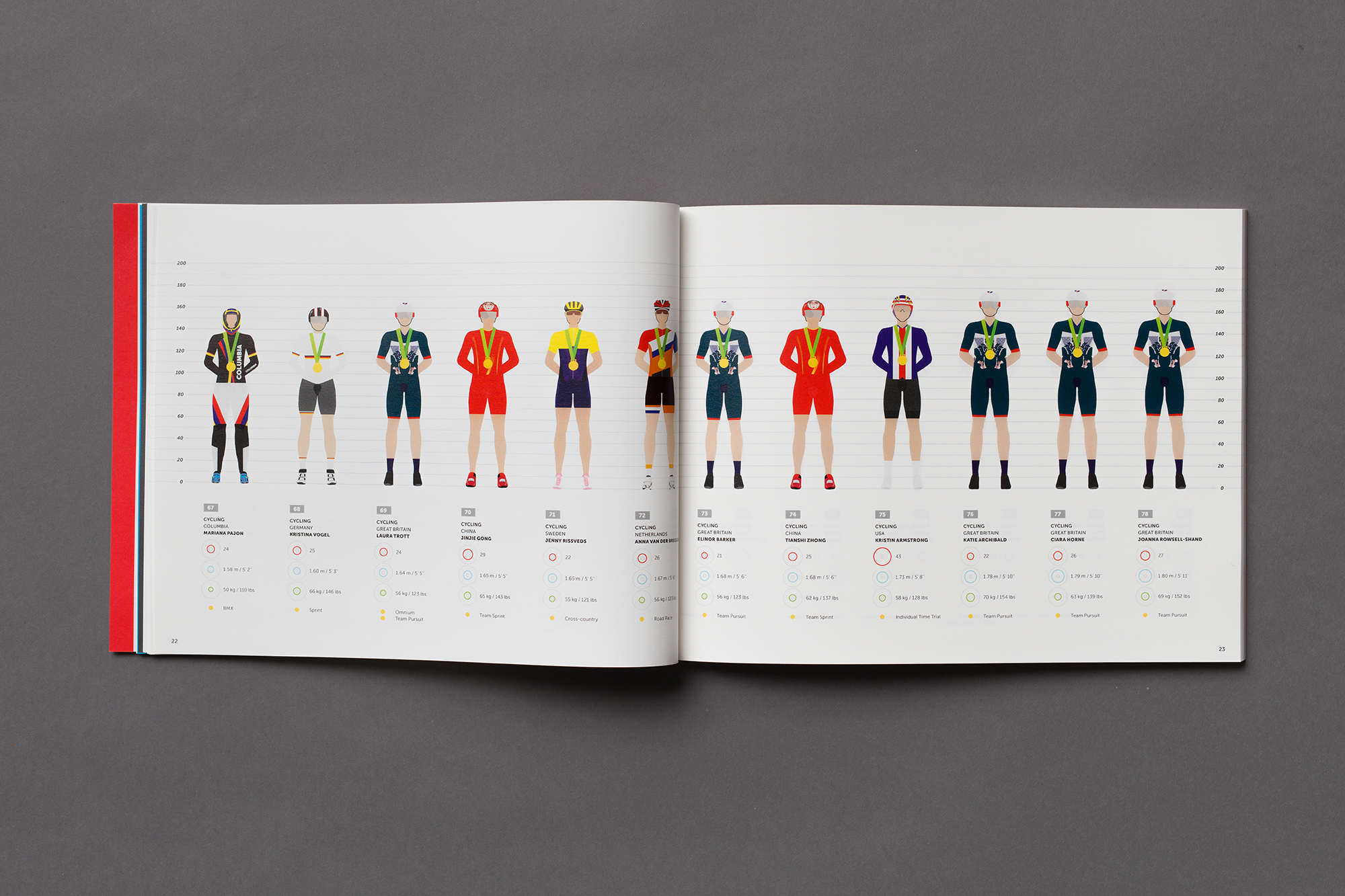

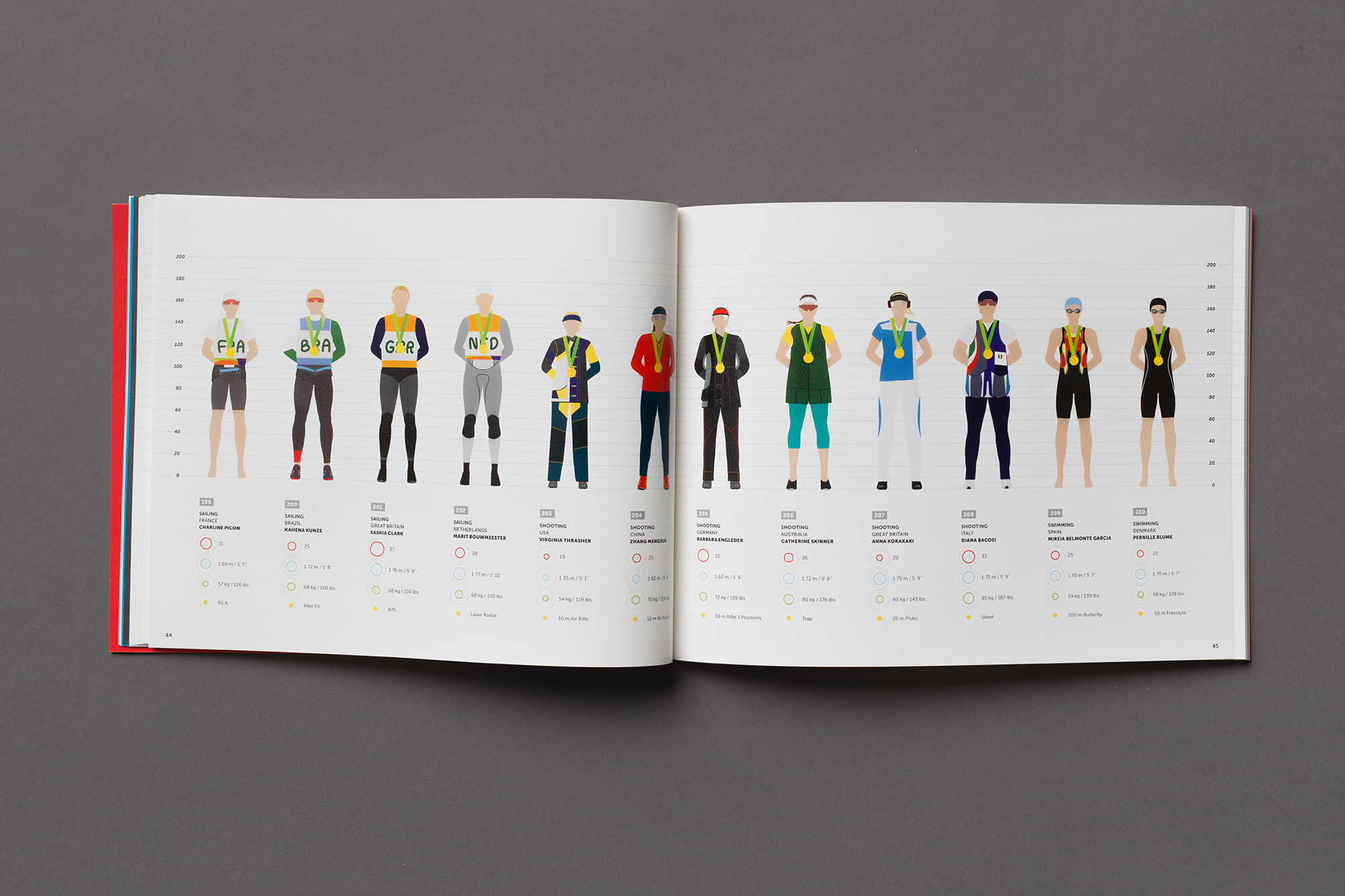
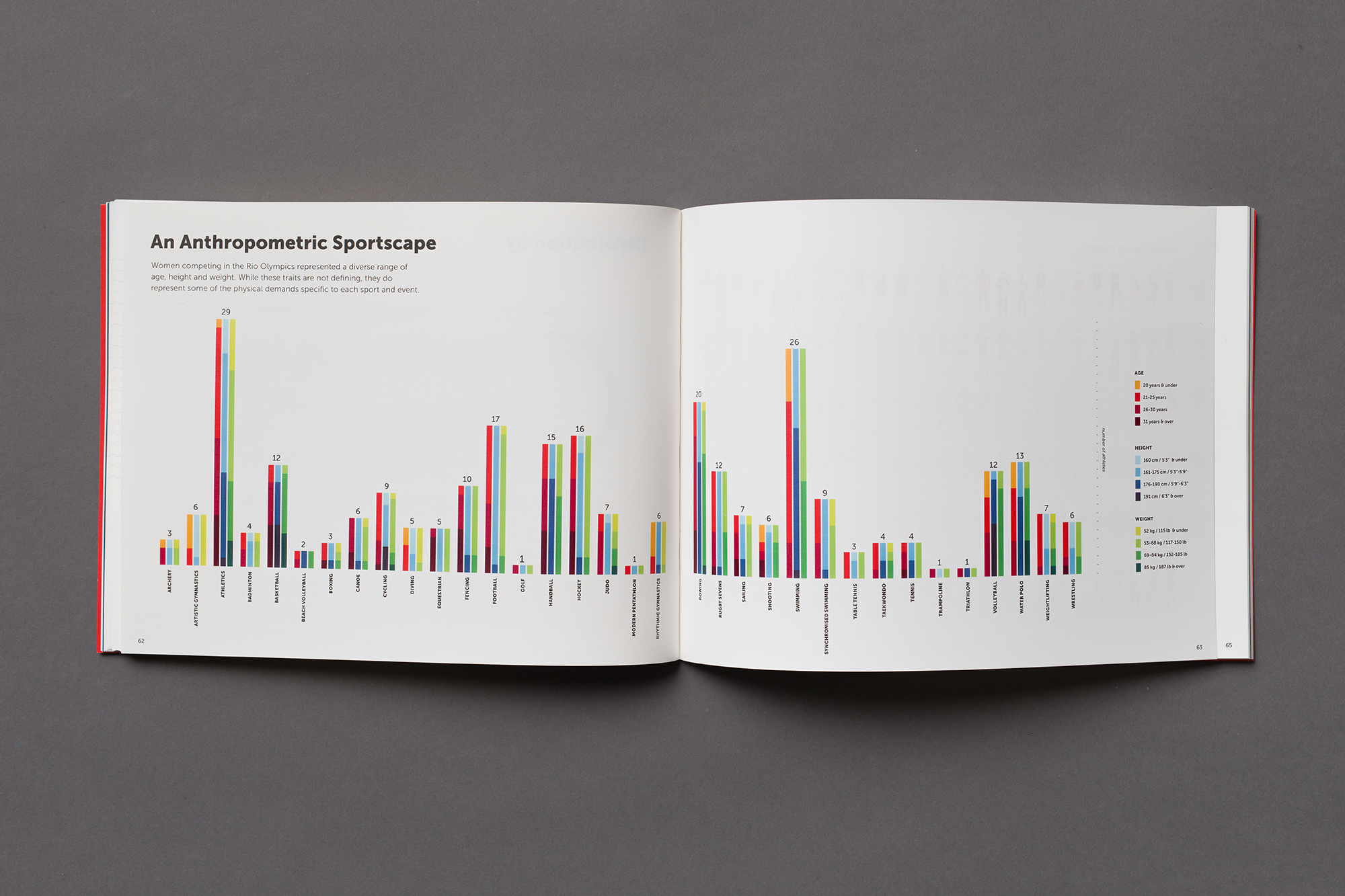
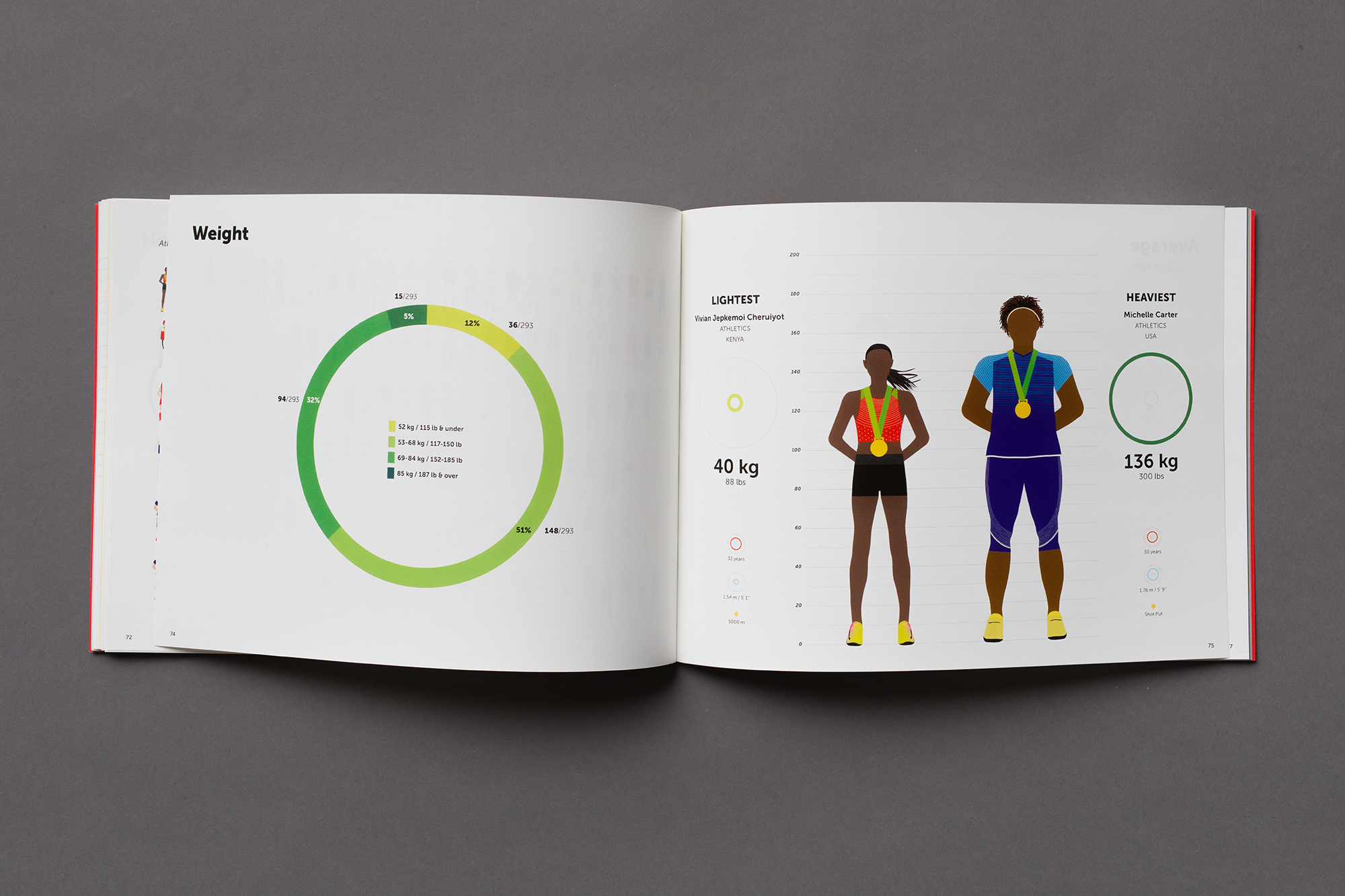

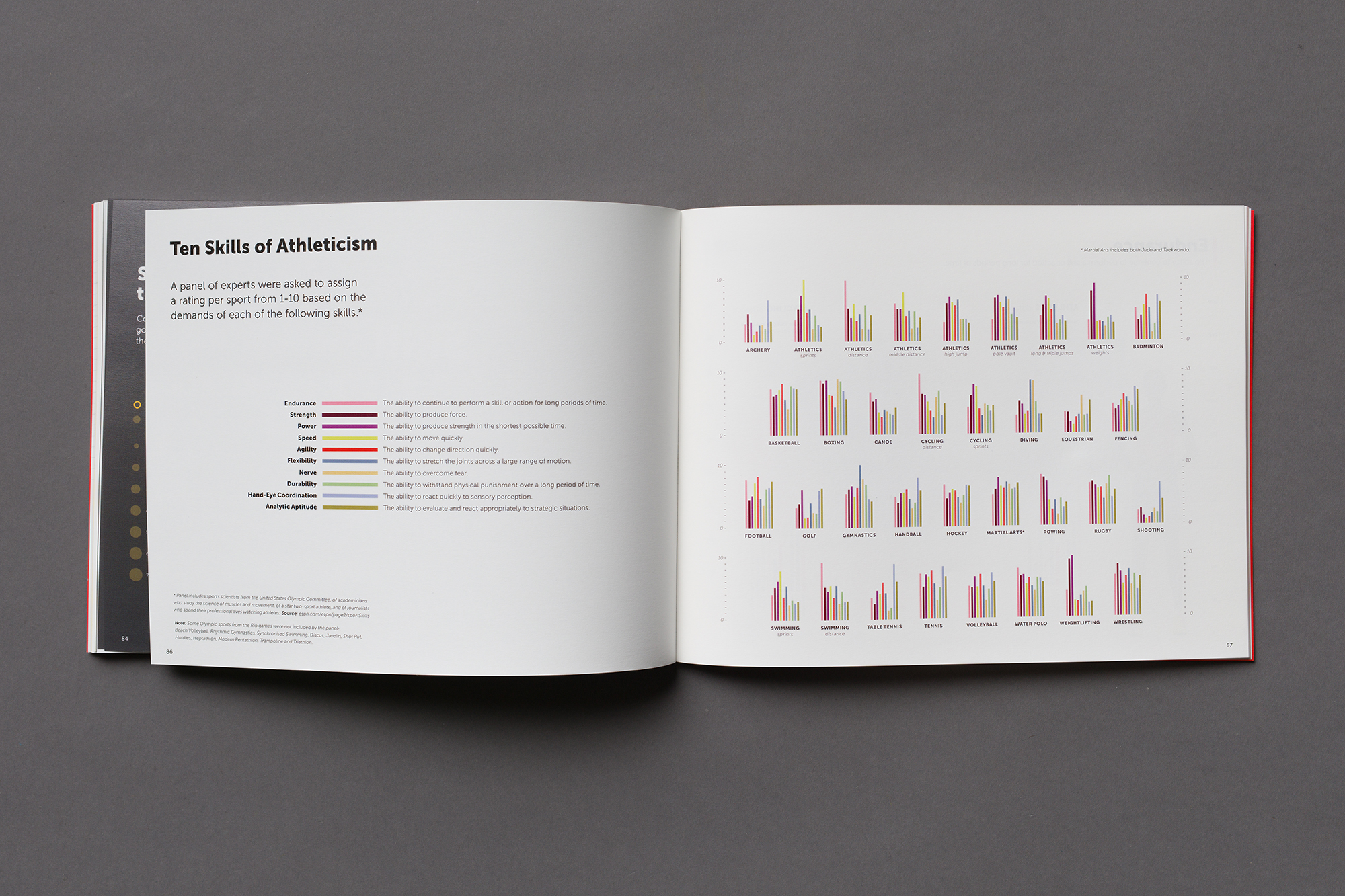
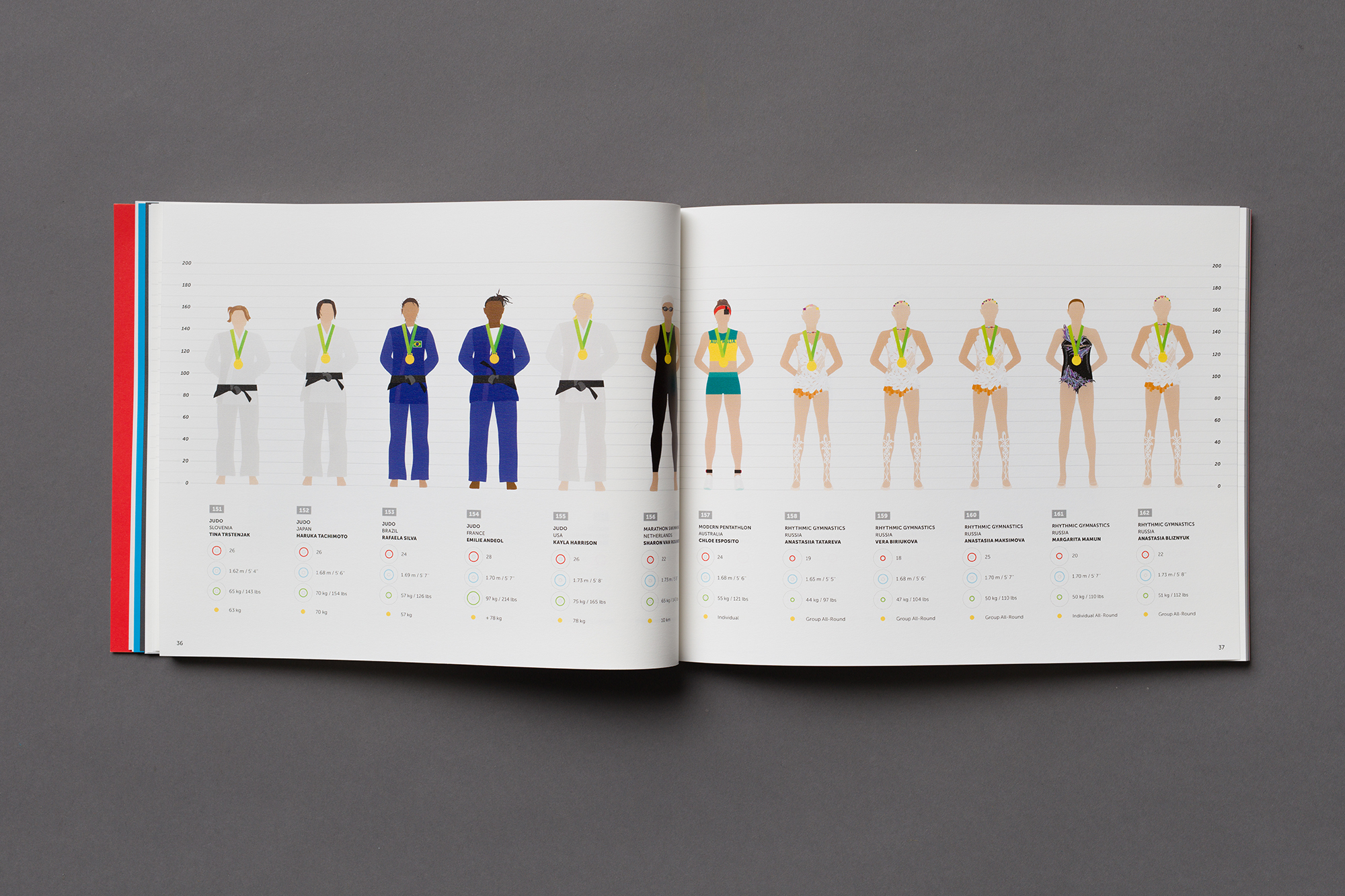
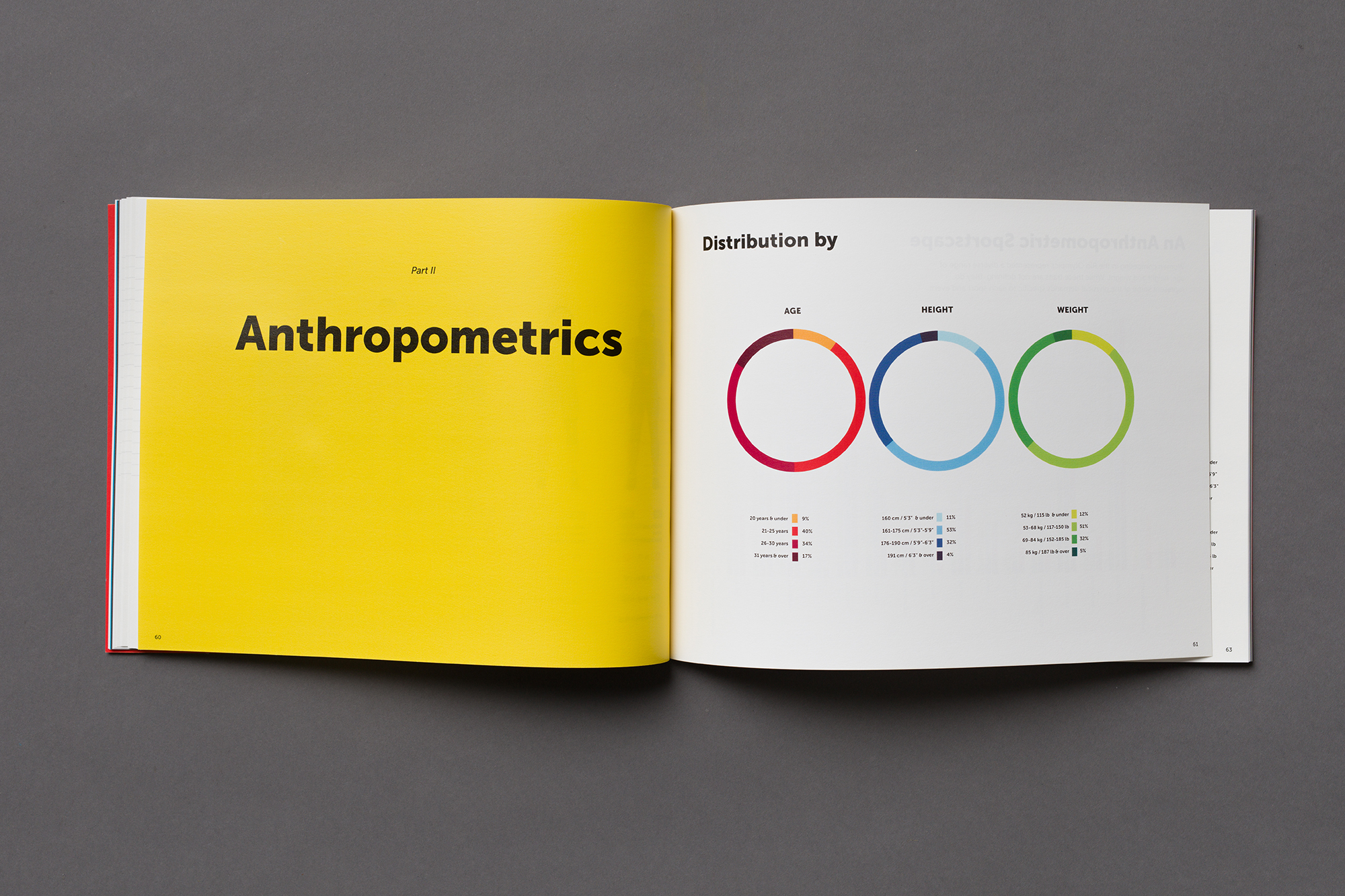

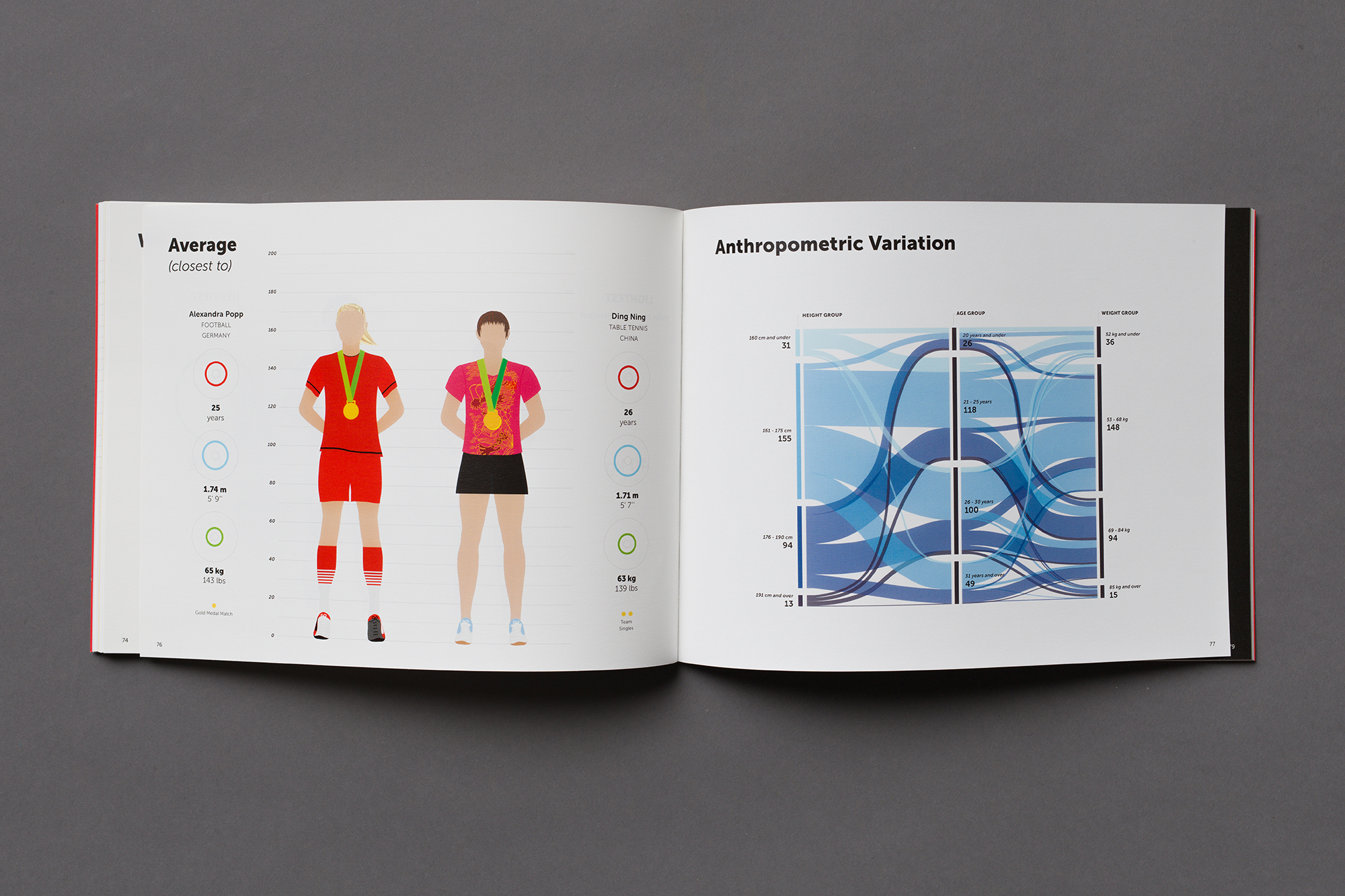
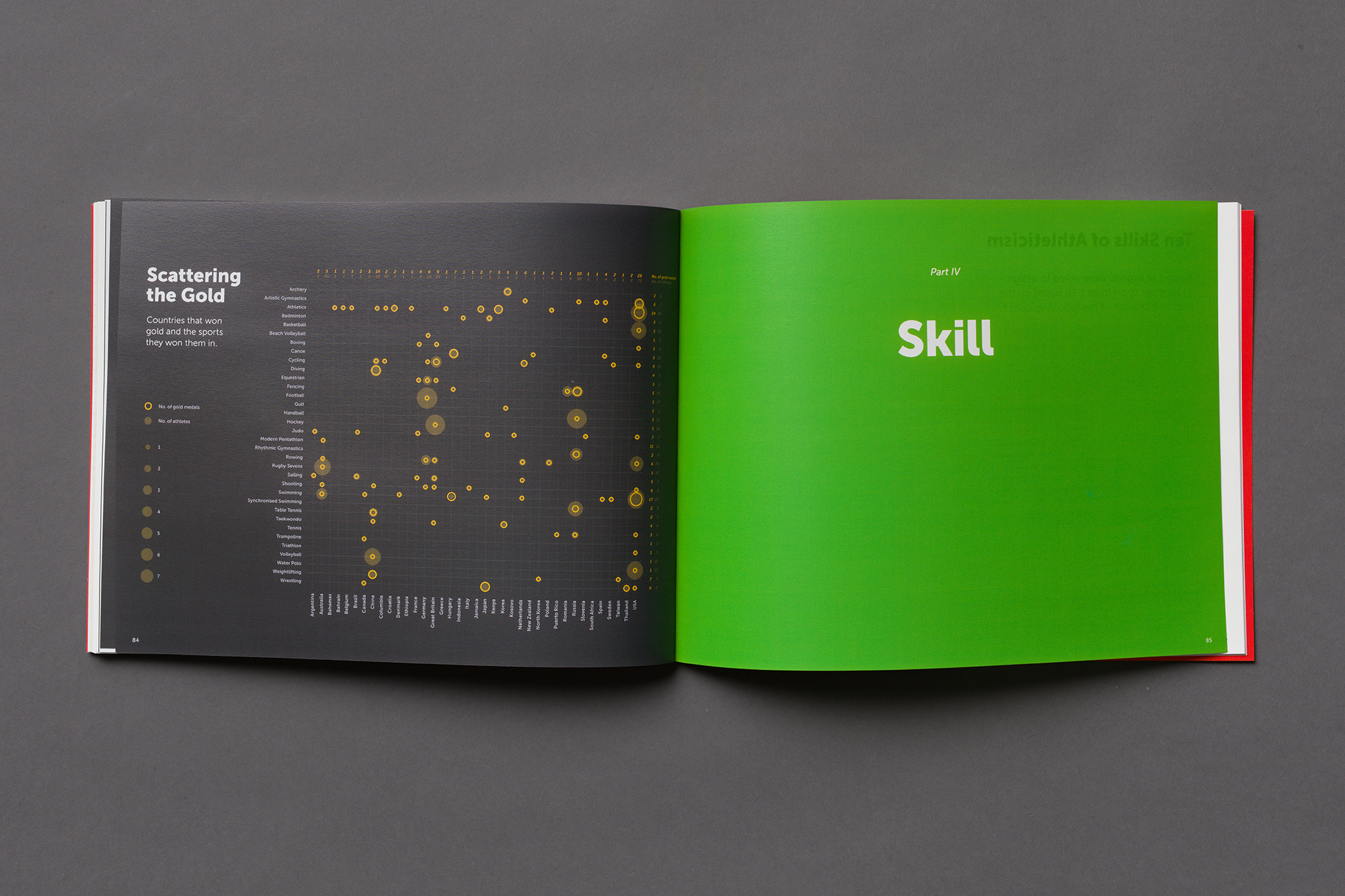
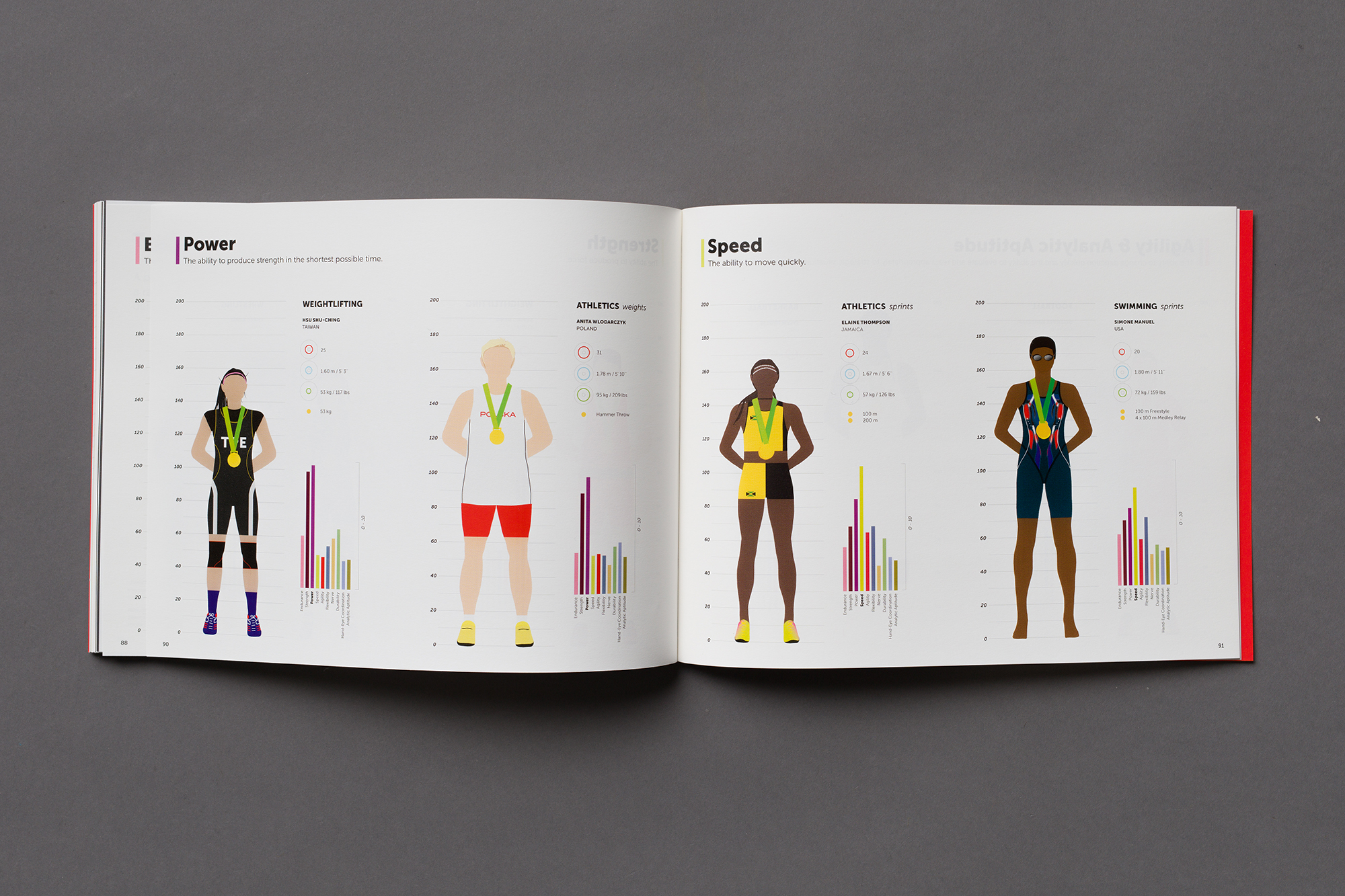


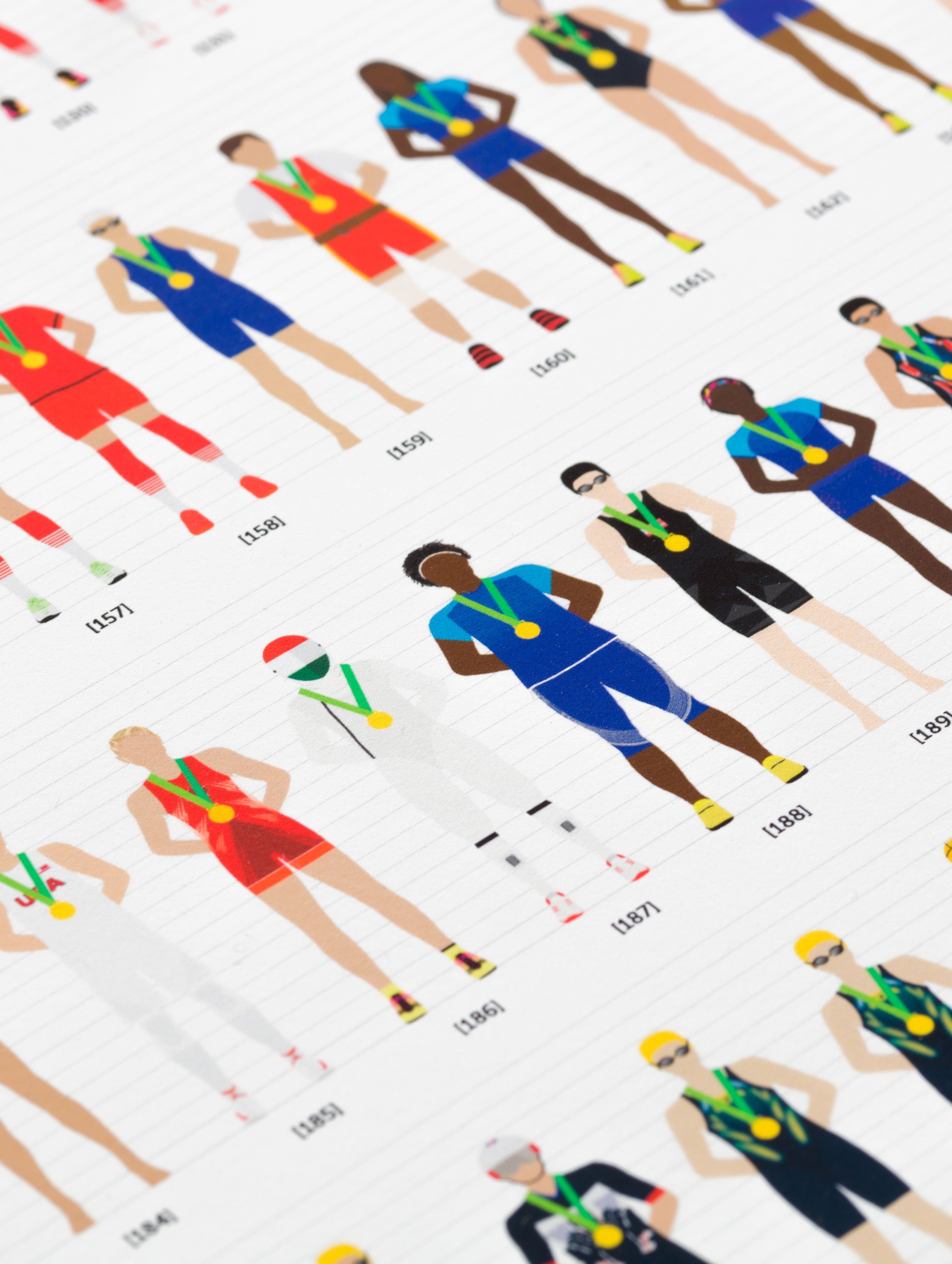

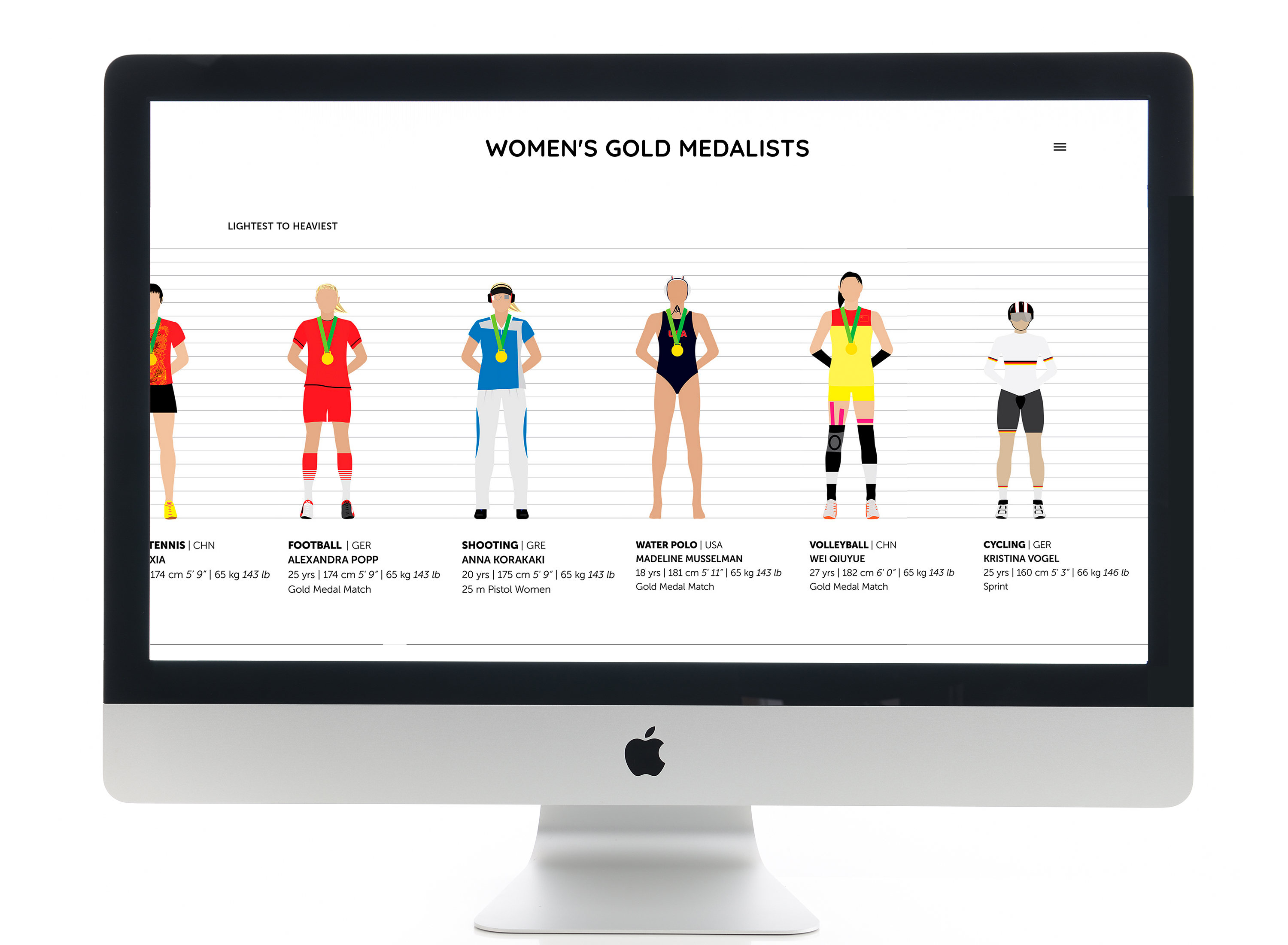
Why is this project useful
It provides girls and young women with positive role models.
It helps to compensate for the lack of media coverage for women's sport. (female racehorses frequently get more media coverage than female athletes)
It helps to compensate for the lack of media coverage for women's sport. (female racehorses frequently get more media coverage than female athletes)
It provides recognition for Olympic sports that can lead to funding which is particularly vital for girls and women but even more so for girls and women in developing countries.
By depicting all athletes in the same pose, in their sporting uniform, with their faces left blank, there is room to reverse the usual media validation of appearance over performance.
By depicting all athletes in the same pose, in their sporting uniform, with their faces left blank, there is room to reverse the usual media validation of appearance over performance.
It is inspirational - only one in ten 14-year-old girls do the required amount of weekly exercise.
It is a guide to the wide variety of sports that many girls and young women are not even aware of. By providing accurate, anthropometric data about elite athletes, it sends a positive message about physical diversity and performance.
It is a guide to the wide variety of sports that many girls and young women are not even aware of. By providing accurate, anthropometric data about elite athletes, it sends a positive message about physical diversity and performance.
There are a host of social, health and psychological benefits when girls participate in sport that continue when they become women - 96% of women in C-Suite level positions have a sport background.
Historically only men’s sport and male atheletic physiology has been documented.
Historically only men’s sport and male atheletic physiology has been documented.
Kickstarter
During the 2016 Rio Olympics I ran a Kickstarter campaign so that the WGM project could be continued to include the women from Rio. Timing it with the Olympics created a great opportunity to increase interest and awareness.
Press during the campaign
Wired Magazine
Chicago Tribune
GOOD
Forbes
The Sydney Morning Herald
The Design Files
Upworthy
Art Director's Club
Kombini
Desktop Magazine
HOW Magazine
SBS Zela
Hearst Empowering Women
Sportsister
Marie Claire
Elle
Really special social media mentions during the campaign
A Mighty Girl
John Maeda
NATO'S Chapter for women
David Epstein (author of the New York Times bestselling book The Sports Gene)
Women’s Gold Medalists has received award recognition from the Premier’s Design Awards, AGDA, AIAP Women in Design Award, HOW, Desktop Magazine, the Association of Illustrator's and the Society of Illustrators NY. Wired Design Editor, Robbie Gonzalez included Women's Gold Medalists in their top design stories for 2016.
Resources
From media coverage, sexism, harrassment, public health, creating role models, redefining stereotypes through to getting women into leadership, here are some informative and powerful resources that look at the current state of women in sport and why it needs to change.
Videos and talks
The Female Athlete: Missing in Action
#covertheathlete
Media coverage and female athletes (documentary)
Books
Breaking The Mould - Angela Pippos (2017)
Eat Sweat Play - Anna Kessel (2016)
The Sports Gene - David Epstein (2014)
Faster, Higher, Stronger - Mark McClusky (2014)
Little Girls in Pretty Boxes - Joan Ryan (1995)
Coming on Strong - Susan Cahn (1994)
Articles
Forbes - Alana Glass
How Celebrating National Girls And Women In Sports Day Can Unlock The C-Suite
New York Times - Katia Iversen
Why you should think twice about ignoring women’s sports
ABC - Stephanie Chalkley-Rhoden
Decline of women’s sports coverage in Australia ‘a tragedy’; report shows drop in coverage
The Conversation - Michelle Sikes and Nana Adom-Aboagye
South Africa needs to do more to promote women in sports
The Conversation - Johanna Adriaanse
Women are missing in sport leadership, and it’s time that changed
Huffington Post - Alanna Vagianos
This Olympic Athlete Is Sick of Being Told She’s ‘Too Pretty To Wrestle’